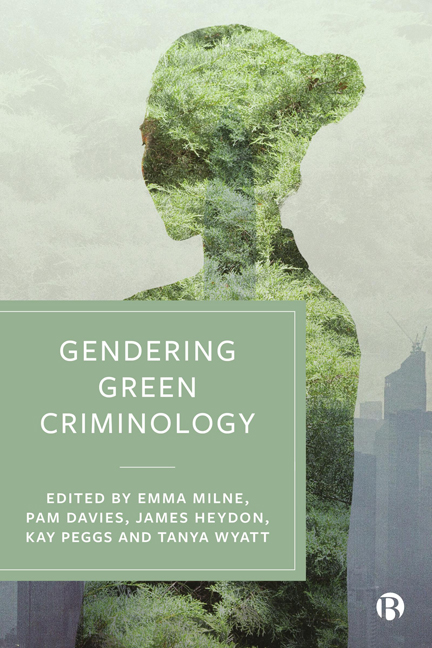11 - ‘Daughters of Dust’: An Eco-Feminist Analysis of Debt-for-Nature Swaps and Underage Marriage in Indonesia
Published online by Cambridge University Press: 28 March 2024
Summary
Introduction
An eco-feminist analysis of debt-for-nature (DFN) swaps and underage marriage highlights what philosopher Karen J. Warren (1990) refers to as the ‘logic of domination’. DFN swaps are agreements through which select developing nations have foreign debt forgiven in exchange for investments in environmental conservation measures (Cassimon et al, 2011), while underage marriage is the formal marriage or informal union between a child under the age of 18 and an adult or another child. Underage marriage is a human rights violation, preventing women and girls from living their lives free from all forms of violence globally (United Nations, 1993). The ‘logic of domination’ represents an intersectional vision of how the oppression of nature mirrors the oppression of women and girls. While some criminologists have attempted to subsume eco-feminist thought into the discipline of criminology (Lane, 1998; Lynch and Stretsky, 2003; Gaarder, 2013; Davies, 2014; Lynch, 2017, 2018; Sollund, 2020; Varona, 2020), these publications do not utilise the ‘logic of domination’ to draw concrete parallels between the eco-violent commodification of nature and women's bodies. In this chapter, I offer an invitation to recapture the theoretical promise of eco-feminism, explaining how all types of oppression are ultimately connected to this same logic. The purpose of this chapter is fourfold. I begin with a brief analysis of human and environmental security through the prism of gender-based violence (GBV). This is followed by an examination of eco-feminist theory as it applies to Indonesia's DFN transaction and prevalence of underage marriage, expanding the conceptual terrain of debt. Finally, I offer some concluding thoughts on the interconnections of DFN swaps and various forms of violence against women in the context of human and environmental security.
Positionality
I offer the following author's note: at the time of this writing, I celebrate the five-year anniversary of the death of my grandmother, Aisha Omrow. Born in the hinterlands of Guyana, she often spoke of the institution of indentured labour – an insidious replacement for slavery in British Guiana that recruited servants from small towns in and around Kolkata, India – and the impact it had on my family. Being Amerindian – the Indigenous peoples of Guyana – she had witnessed the onslaught of ecologically destructive activities on ancestral lands, and the concomitant eco-violence against women and children.
- Type
- Chapter
- Information
- Gendering Green Criminology , pp. 205 - 226Publisher: Bristol University PressPrint publication year: 2023

